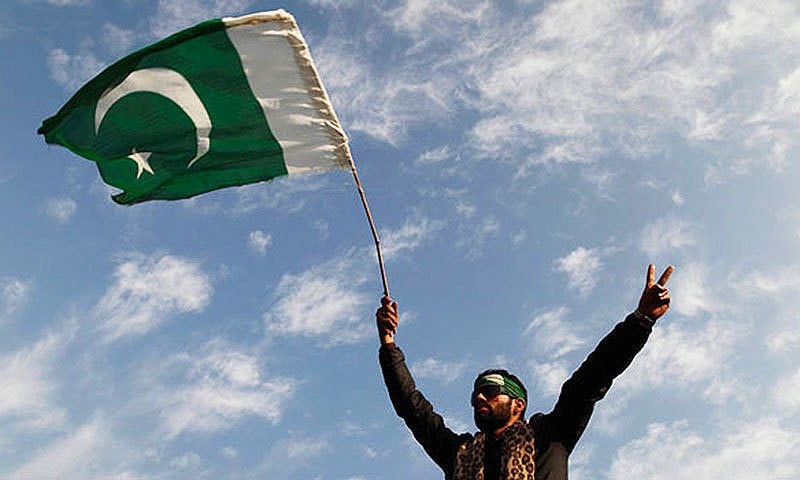By: Ubaid Sahil
Recently, I read an eye-opening book about our beloved country Pakistan titled “The Nine Lives of Pakistan,” authored by Irish journalist and writer Declan Walsh, a journalist at The New York Times. Walsh spent over a decade in Pakistan, and within his book, he delved into the multifaceted nature of the country. I have a tendency to read books on Pakistan written by foreigners because they offer diverse viewpoints that introduce us to numerous novel aspects from varying perspectives. This particular book is especially worthwhile.
Pakistan boasts one of the largest youth populations globally, with immense potential to lead and shape the nation’s future. However, a significant portion of Pakistan’s youth remains unskilled and unemployed.
In his marvelous masterpiece, Declan Walsh discusses a myriad of topics. However, a statement that particularly captured my attention is written on the final pages of the book. He writes: “Pakistanis possess many advantages and strengths. There is a significant number of educated, ambitious, and resourceful young people. An extended family system provides a social safety net. Surprisingly, there are pockets of tolerance even in the most conservative areas, along with deep reserves of resilience. Above all, Pakistanis are survivors.”
This statement truly reflects the real image of our society. The author’s perspective toward the Pakistani nation is based on reality. The Pakistani nation indeed possesses numerous advantages and strengths. Our geostrategic location on the Earth’s map provides us with significant advantages. Pakistan’s coastline holds immense importance for Central Asia and China, exemplified by the China-Pakistan Economic Corridor (CPEC) project under the Chinese Belt and Road Initiative. Our most significant strength lies in our Muslim identity, which always unites us in every situation. Our beloved country, Pakistan, came into existence in the name of Islam. Regardless of the threats and crises we face, this unity will continue to bind us together.
Pakistan boasts one of the largest youth populations globally, with immense potential to lead and shape the nation’s future. However, a significant portion of Pakistan’s youth remains unskilled and unemployed. To harness their potential and drive the country’s development, it is crucial to provide them with high-quality education and equip them with modern, in-demand skills. The information technology (IT) sector, in particular, has the potential to significantly boost our exports. Unfortunately, Pakistan’s literacy rate currently stands at approximately 62%, which is notably low for a developing nation like ours. It is worth noting that this rate has significantly improved from the 14% literacy rate at the time of Pakistan’s independence in 1947.
Our family system is renowned worldwide for providing financial and social assistance to each and every family member. This intricate family structure is the key to our social cohesion. Multiple families come together to form a unified source of strength.
The Pakistani nation embodies resilience. From enduring devastating wars and natural disasters to facing severe economic and political crises, including periods of dictatorship, it has weathered numerous challenges. Presently, Pakistan confronts significant economic and political challenges, marked by soaring petrol prices and a depreciating exchange rate with the dollar, both surpassing triple digits. Energy crises persist, triggering widespread protests across the country. Record-level inflation compounds these issues, leading to financial instability. Currently, both the military establishment and the civil government are actively addressing these crises. The establishment of the Strategic Investment Facilitation Council (SIFC) serves as one example of these efforts. Our primary objective should be to gain the trust of foreign investors. Additionally, we must not underestimate the importance of the China-Pakistan Economic Corridor (CPEC), which holds the potential to boost our economy and transform our infrastructure.
On one side, economic and political instabilities are tarnishing our nation’s global image. On the other hand, terrorist and militant activities are rapidly escalating across the country. Brutal terrorist attacks are frequently reported, especially in the Khyber Pakhtunkhwa region. According to reports, more than 300 terrorist incidents were recorded in the first eight months of 2023 in the Khyber Pakhtunkhwa province. Security forces, including the police and FC troops, are often the primary targets of these terrorists. It is imperative to clarify the distinction between ‘good Taliban’ and ‘bad Taliban.’ There is a growing demand for the complete eradication of these militants, as failure to do so could pose significant threats in the future.
Our nation’s hope and dream for a better future remain unbroken. Record-level inflation, economic and political instability, and devastating disasters cannot break the nation’s love for Pakistan. The majority of the people remain loyal to this nation, and this collective resilience shows that we are truly the greatest survivors.
The writer is a freelance columnist. He can be reached at ubaidsa9@gmail.com

